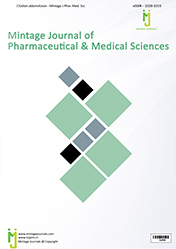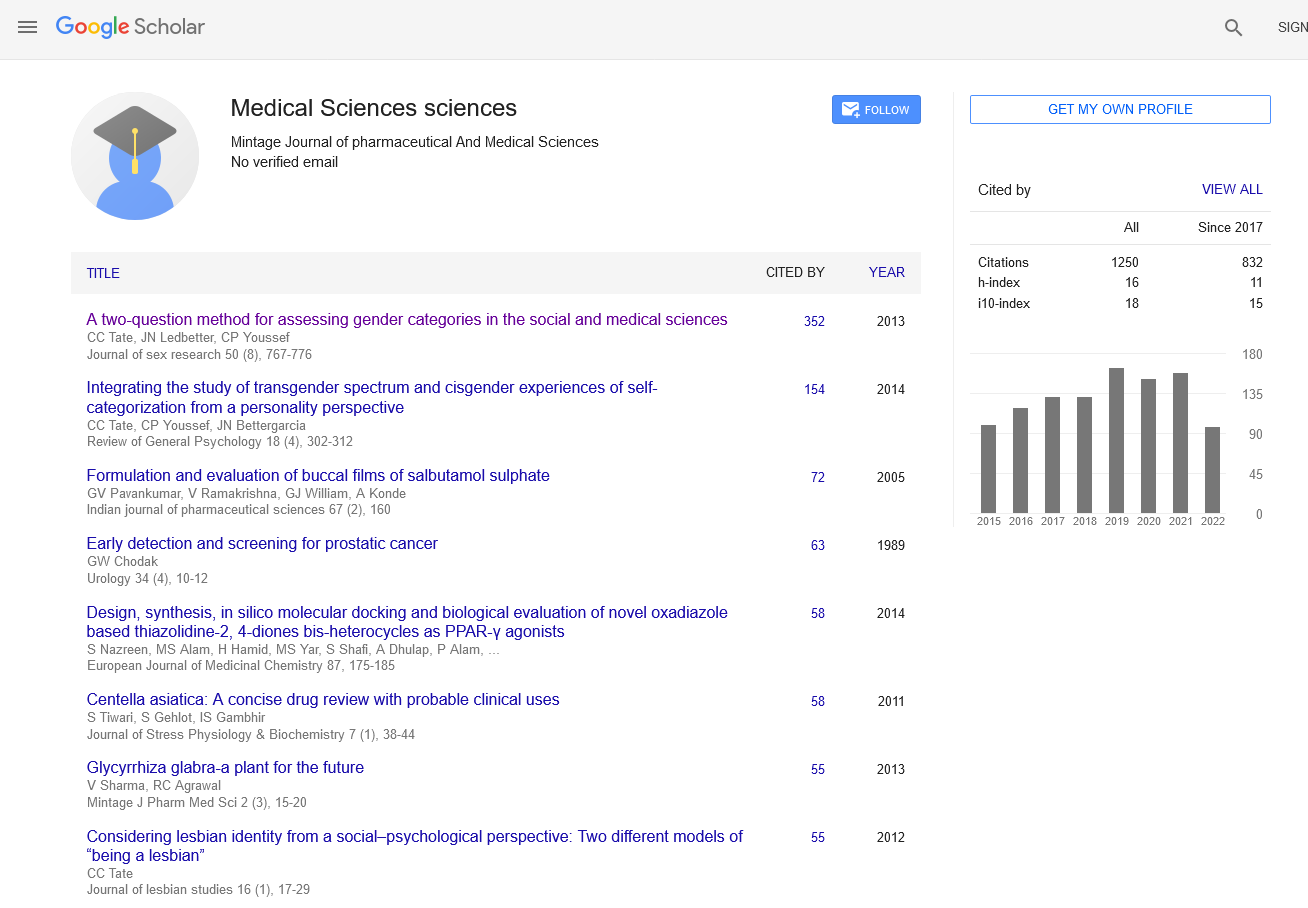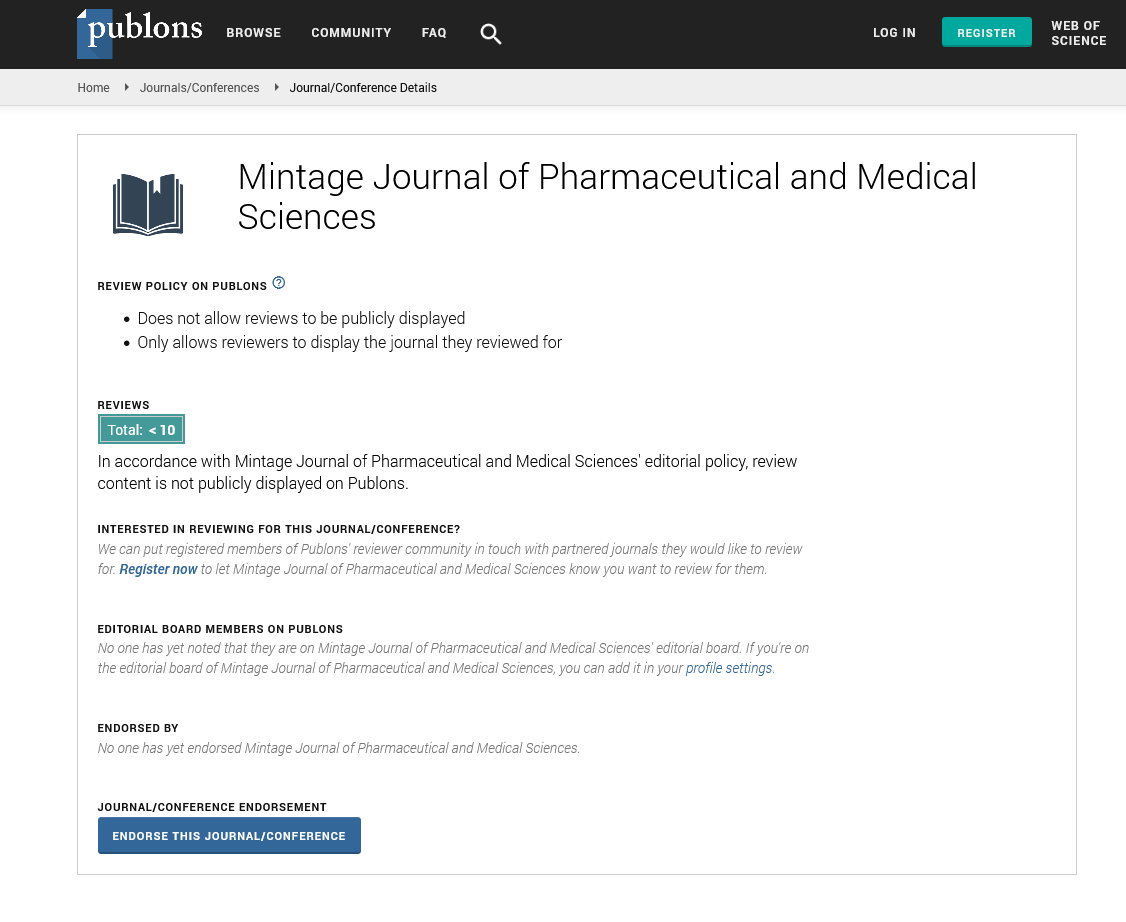The Dual Impact of Pharmaceuticals on Physical and Mental Well-being
Opinion - (2024) Volume 13, Issue 3
Introduction
Medicines play a crucial role in the prevention, treatment, and management of a wide range of diseases and health conditions. From life-saving antibiotics and vaccines to medications that control chronic illnesses like hypertension or diabetes, modern medicine has transformed healthcare and extended life expectancy. However, while medicines can offer significant benefits, they also come with potential side effects and long-term impacts on both physical and mental health. Understanding these effects is vital for maximizing therapeutic benefits while minimizing risks.
Description
Medications can have profound effects on physical health, often improving the quality of life for individuals with acute or chronic conditions. For example, antibiotics revolutionized the treatment of bacterial infections, drastically reducing mortality from once-deadly diseases like pneumonia and tuberculosis. Similarly, medications for chronic diseases, such as antihypertensives, insulin, and statins, allow individuals to manage conditions like high blood pressure, diabetes, and high cholesterol effectively, reducing the risk of complications such as heart attacks, strokes, and kidney failure. Pain medications, ranging from over-the-counter analgesics to prescription opioids, offer relief from acute and chronic pain, improving mobility and function for millions of people. However, despite their benefits, medications can also have unintended consequences on physical health. Side effects are common, with some drugs causing mild reactions like nausea, headaches, or dizziness, while others can lead to more serious complications such as liver damage, kidney problems, or allergic reactions. For instance, nonsteroidal anti-inflammatory drugs (NSAIDs), commonly used to relieve pain, can cause gastrointestinal issues, including ulcers and bleeding, with prolonged use. Similarly, long-term use of corticosteroids, often prescribed for inflammatory conditions, can result in weight gain, weakened bones, and an increased risk of infections. Another critical issue related to medications is drug interactions. Many individuals, particularly older adults, take multiple medications simultaneously, a practice known as polypharmacy. While each drug may be necessary for treating specific conditions, the interaction between different medications can lead to adverse effects, sometimes amplifying risks rather than reducing them. For example, certain heart medications, when taken with blood thinners, can increase the risk of bleeding. As a result, healthcare providers must carefully manage and monitor drug regimens to avoid harmful interactions and ensure the safety and efficacy of treatments. Beyond the physical impact, medications also have significant effects on mental health. In many cases, medications are essential for treating mental health disorders. Antidepressants, antipsychotics, and anti-anxiety medications have been life-changing for individuals suffering from conditions like depression, schizophrenia, and anxiety disorders. These drugs work by altering brain chemistry to restore balance in neurotransmitters, which play a critical role in mood regulation, cognition, and emotional well-being. For many patients, these medications provide relief from debilitating symptoms, allowing them to function more effectively in their daily lives and improving overall mental health. However, medications that affect brain chemistry can also have side effects on mental health. For instance, while antidepressants help many people, they can cause side effects such as insomnia, fatigue, weight gain, or sexual dysfunction, which can negatively impact mental well-being. Some individuals may also experience increased anxiety or mood swings when starting or adjusting their medication, as the body adapts to the changes in neurotransmitter levels. In more severe cases, certain medications can increase the risk of suicidal thoughts, particularly in younger individuals, which necessitates close monitoring by healthcare providers. Moreover, the psychological burden of relying on medication can impact an individual’s mental health. For some, the need to take medication regularly can cause stress, anxiety, or feelings of dependency. This is particularly true for individuals with chronic conditions who may feel overwhelmed by the longterm nature of their treatment. Medication adherence can become a source of anxiety, as patients worry about the consequences of missing doses or the potential side effects of their treatments.
Conclusion
In conclusion, while medicines are indispensable tools in modern healthcare, they have a complex relationship with both physical and mental health. The positive effects of medications in treating and managing diseases are undeniable, but their potential side effects and long-term impacts must also be considered. Healthcare providers and patients alike must work together to ensure that the benefits of medications are maximized while minimizing risks, through careful monitoring, adherence to prescribed regimens, and open communication about any adverse effects. By doing so, medicines can continue to improve both physical and mental health outcomes, contributing to a better quality of life for millions of people.
Author Info
Sarwar Tan*Received: 02-Sep-2024, Manuscript No. mjpms-24-147951; , Pre QC No. mjpms-24-147951 (PQ); Editor assigned: 04-Sep-2024, Pre QC No. mjpms-24-147951 (PQ); Reviewed: 18-Sep-2024, QC No. mjpms-24-147951; Revised: 23-Sep-2024, Manuscript No. mjpms-24-147951 (R); Published: 30-Sep-2024, DOI: 10.4303/2320-3315/236030
Copyright: © This article is an open access article distributed under the terms and conditions of the Creative Commons Attribution (CC-BY) license (http://creativecommons.org/licenses/by/4.0/)

ISSN: 2320-3315
ICV :81.58

